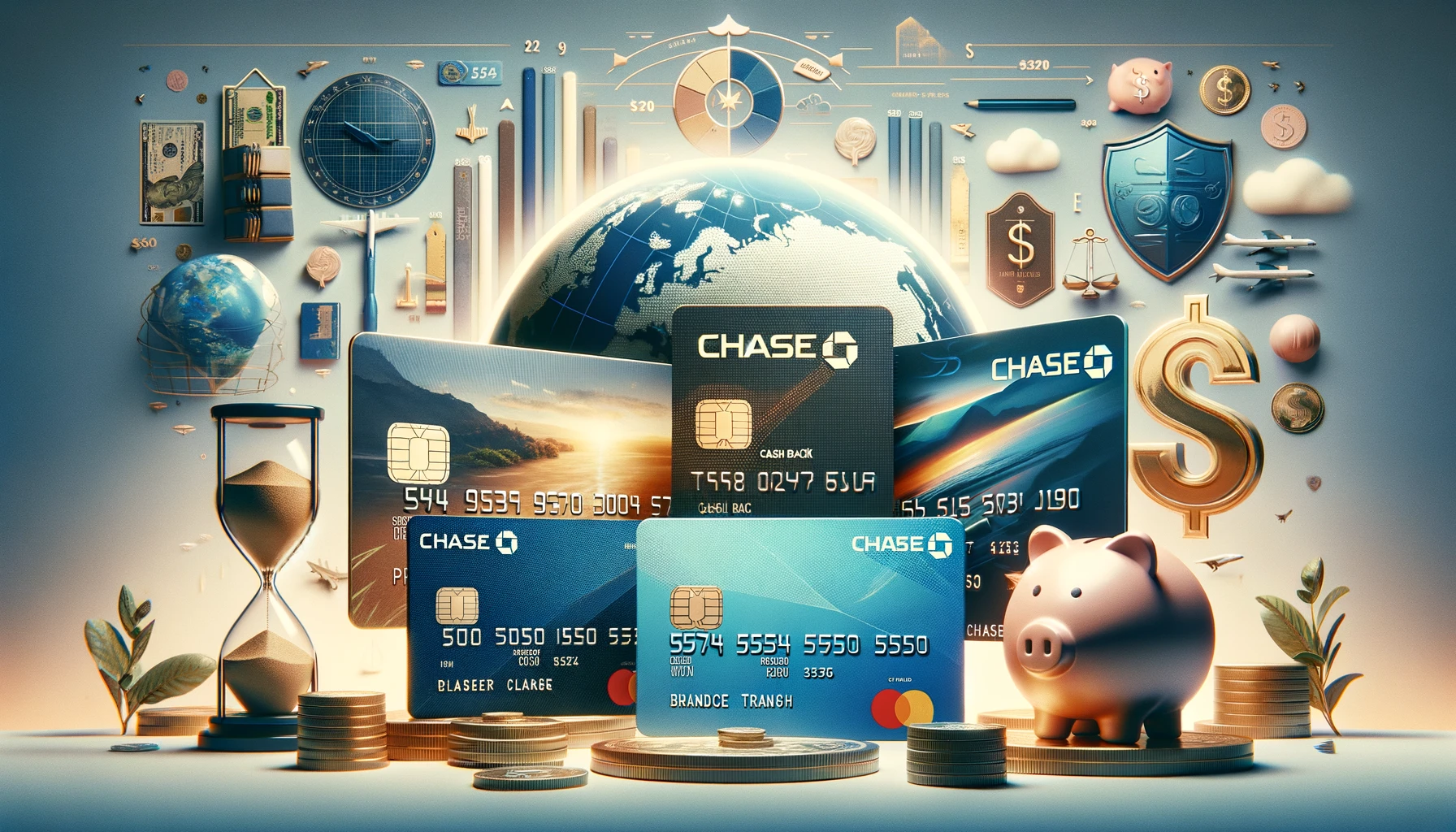Welcome to the world of credit cards! If you’re in the market for a new credit card, chances are you’ve come across the Chase Credit Card. Known as one of the largest credit card issuers in the U.S., Chase offers a diverse range of cards tailored to various needs. In this article, we’ll delve into the different types of Chase Credit Cards, weigh their pros and cons, and guide you through the application process.
Different Kinds of Chase Credit Cards
Chase’s portfolio includes several types of cards, each designed for specific consumer needs:
- Cash Back Cards: Ideal for those who love getting a portion of their spending back. Examples include the Chase Freedom Flex and Chase Freedom Unlimited, offering cash back ranging from 1% to 5%.
- Travel Cards: For the globetrotters, these cards like Chase Sapphire Preferred and Cruise reward your travel expenses with exclusive points redeemable for travel-related benefits.
- Balance Transfer Cards: A solution for managing high-interest debt, cards like Chase Slate and Chase Freedom Flex offer options to transfer balances to lower interest rate cards.
Pros and Cons of Chase Credit Cards
Pros:
- Reward Programs: Earn points or cash back on purchases, redeemable for gift cards, travel, and more.
- Sign-up Bonuses: Many cards offer lucrative sign-up bonuses, varying with the card and ongoing offers.
- Travel Benefits: Travel cards come with perks like travel insurance, lounge access, and no foreign transaction fees.
- Fraud Protection: All cards include fraud protection, ensuring you’re not liable for unauthorized charges.
Cons:
- Annual Fees: Ranging from moderate to high, these fees might outweigh benefits if the card is underutilized.
- High Interest Rates: Carrying a balance can be costly due to potentially high-interest rates.
- Credit Requirements: Higher-tier cards require excellent credit, possibly limiting options for some applicants.
How to Apply for a Chase Credit Card
Applying for a Chase Credit Card is straightforward:
- Visit the Chase website and navigate to the ‘credit cards’ section.
- Review the different cards and select one that aligns with your needs.
- Click on ‘Apply Now’, fill out the application form, and submit it.
- Await a response, which could be immediate or take a few days.
- Once approved, expect your card within 7-10 business days.
Final Thoughts
Chase Credit Cards offer a wide range of options, catering to travel, cash back, and balance transfer needs. While these cards come with numerous benefits, it’s essential to consider the downsides like high interest rates and annual fees. Carefully read the terms and conditions and evaluate whether the benefits outweigh the potential drawbacks before applying.
FAQs
Q: What is Chase Credit Card? A: It’s a range of credit cards issued by Chase, catering to various consumer needs.
Q: What are the types of Chase credit cards available? A: Chase offers travel, cash-back, and balance transfer cards.
Q: What are the benefits of Chase Credit Cards? A: Benefits include reward schemes, sign-up bonuses, travel perks, and fraud protection.
Q: What are some downsides to Chase Credit Cards? A: Potential downsides include high interest rates, annual fees, and stringent credit requirements.
Q: How do I apply for a Chase Credit Card? A: Apply through the Chase website by filling out an online application form.
Q: How long does it take to receive a Chase Credit Card? A: Approval may be instant or take a few days, with the card arriving within 7-10 business days.
Q: What credit score is needed for a Chase Credit Card? A: Requirements vary; some cards require excellent credit.
Q: Where can I use my Chase Credit Card? A: Usage varies by card; some are accepted universally, while others have specific usage areas.
Q: How do I redeem rewards from my Chase Credit Card? A: Redemption varies by rewards program and card, typically allowing for cash, travel, merchandise, or gift card redemptions.
Q: What should I consider before applying for a Chase Credit Card? A: Consider the card’s pros and cons, fees, your credit score, spending habits, and financial needs to choose the best option for you.
